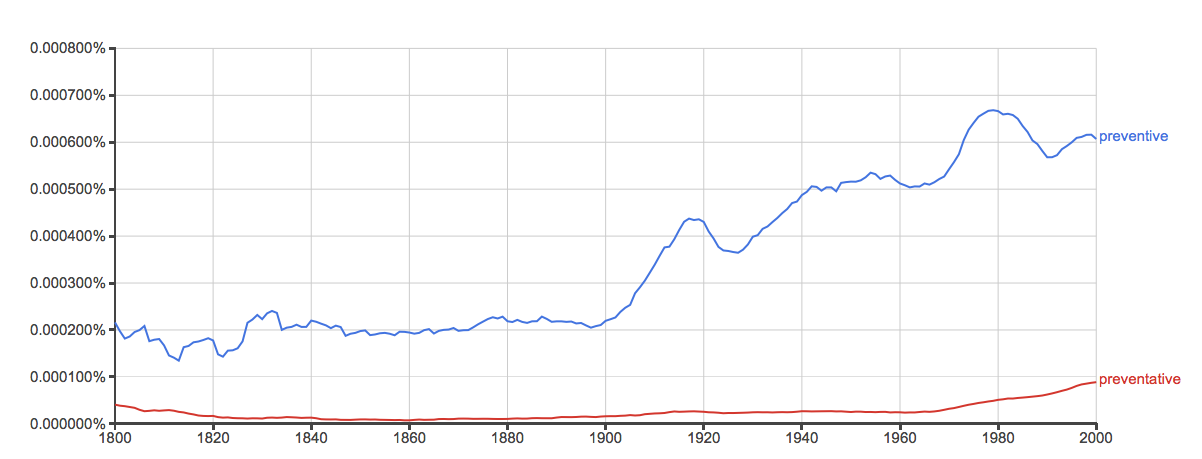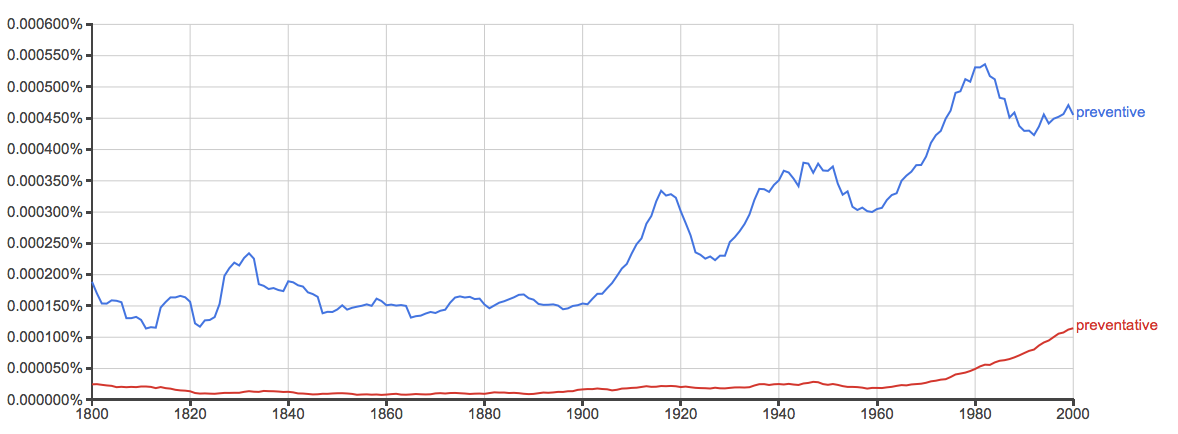If you are a doctor and you specialize in helping your patients maintain a healthy lifestyle in order to prevent disease and disability, are you practicing preventive medicine or preventative medicine? In other words, which of these two options is the correct adjectival and noun form of the word prevent?
Today, I want to talk about these two words, both of which have the same meaning, and explain which of them are correct. After reading this post, you’ll have a clear understanding of the preventive vs. preventative debate.
What is the Difference Between Preventive and Preventative?
Preventive and preventative both function as adjectives and nouns and refer to things that prevent, hinder, or act as obstacles. For example,
- Have you ever considered preventive healthcare? (adjective)
- My health insurance plans offers free preventative visits. (adjective)
- As a preventative measure, I brought a raincoat. (adjective)
- This is the best wrinkle preventive around. (noun)
 You’re probably still asking yourself, “Okay, when do I decide which one to use?”
You’re probably still asking yourself, “Okay, when do I decide which one to use?”
The short answer to this question is that both are acceptable formations. But, that’s not all that should be said on the matter.
When to Use Preventive
Although both forms are linguistically valid, preventive is clearly the preferred choice in popular usage and in formal and professional writing. As the below graph shows, preventive is used at rate approximately eight times to that of preventative.

The New York Times prefers preventive, as does the AP Stylebook, The Chicago Manual of Style, and Garner’s Usage Guide. You’re much more likely to see the shorter form in print and much less likely to raise an eyebrow when using it.
Furthermore, the extra syllable created by preventative is superfluous and therefore unnecessary, although the longer form is preferred in other similarly formed words like exploitive and exploitative.
It’s also worth noting that this is not simply a North American preference. Across geographical boundaries, the shorter form preventive is preferred, whether it’s in American, British, or Australian English.
The below graphs show that in American and British English, respectively, preventive is the preferred choice.


Given the severe preference for the shorter form, I advise you to use preventive over preventative, even though there isn’t anything necessarily wrong with the longer form.
When to Use Preventative
As I outlined above, there are a number of reasons to favor the shortened version over the elongated preventative, and I can’t really think of any benefits that would arise from using the longer word, so I advise against using it.
Unless it adds a specific rhythm to your prose that cannot be accomplished using the shorter form, there really is no need to use the longer form. Garner’s Modern American Usage calls preventative unfortunate and unnecessary.
Which Word Came First?
Both words entered English during the 17th century and have been fighting it out ever since. The shorter form preventive predates the longer preventative by just a few decades.
Summary
While both words are acceptable formations, there is a strong preference among English users for the shortened form. However, this doesn’t translate into a rule of always favoring the shorter word. Similarly formed words must be inspected on a case-by-case basis.
But as for preventative vs. preventive, it’s best to use the shorter of the two.
Contents
